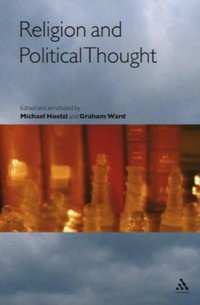This book provides an essential resource for studies in religion and politics. It is divided into three parts, beginning with an introduction outlining the contemporary relevance of reviewing the relationship between the two subject areas; a brief history of the interactions between religion and politics that have pertained both in East and the West, and the key concepts that relate these two fields. The second section comprises a selection of classic readings. Beginning with Aristotle, the readings explore the metaphor of the body and its political deployment in the mediaeval period, the concern with sovereignty in early modernity, religion and democracy in Enlightenment Europe, religion and democracy in America, nineteenth-century socialism, and twentieth-century concerns with totalitarianism and democracy. The third section comprises an introductory essay followed by eight full-length essays by contemporary thinkers, exploring key ideas that are currently at the forefront of debates concerning religion and political life.
Four of these essays move beyond the 'Christian' framing behind the classical texts, to examine how key concepts from this historical legacy have impacted on Hinduism, Islam, Judaism and Buddhism. One other essay explores issues with respect to the politics of gender and liberation theology. The remaining three treat important contemporary issues as represented by three important social/cultural theorists - the state of emergency and the homo sacer, the radical nature of agape and the relationship between democracy and secularism.
